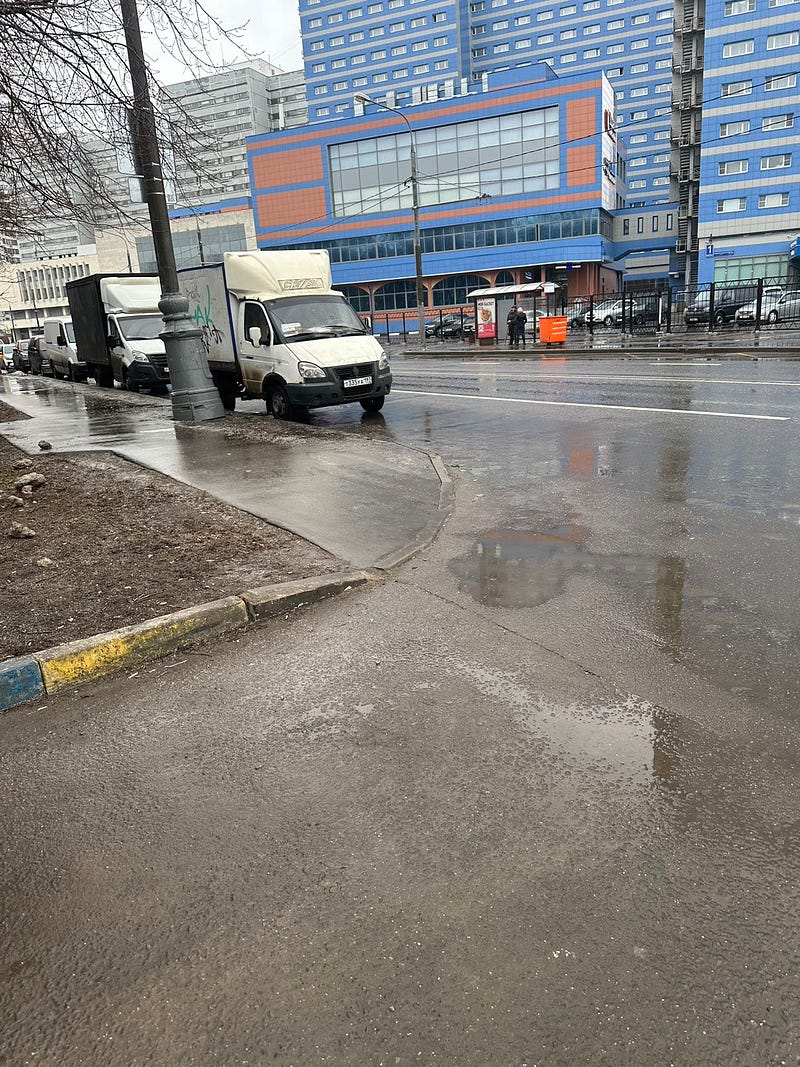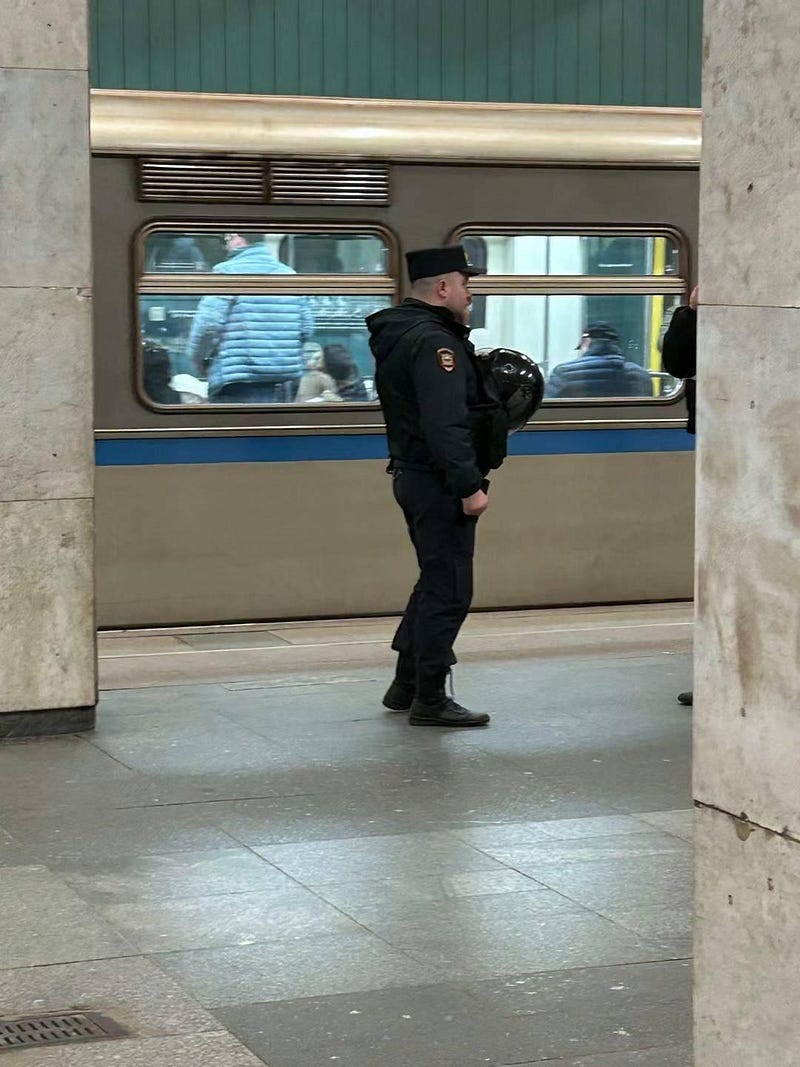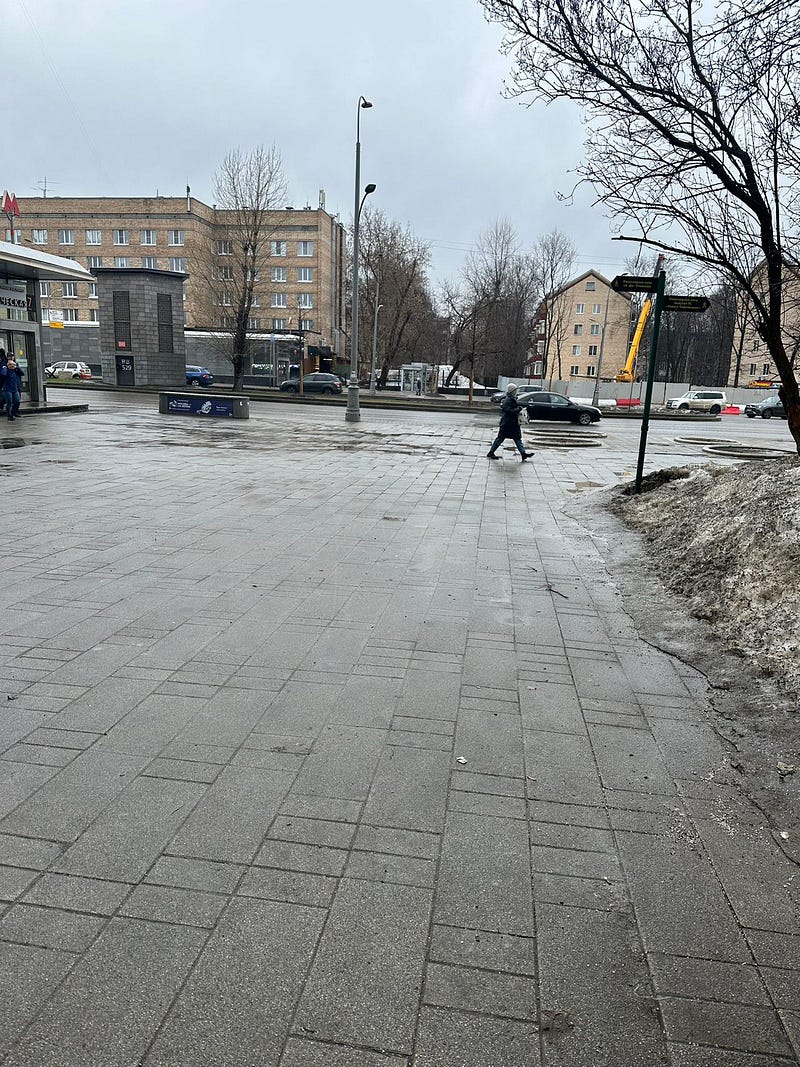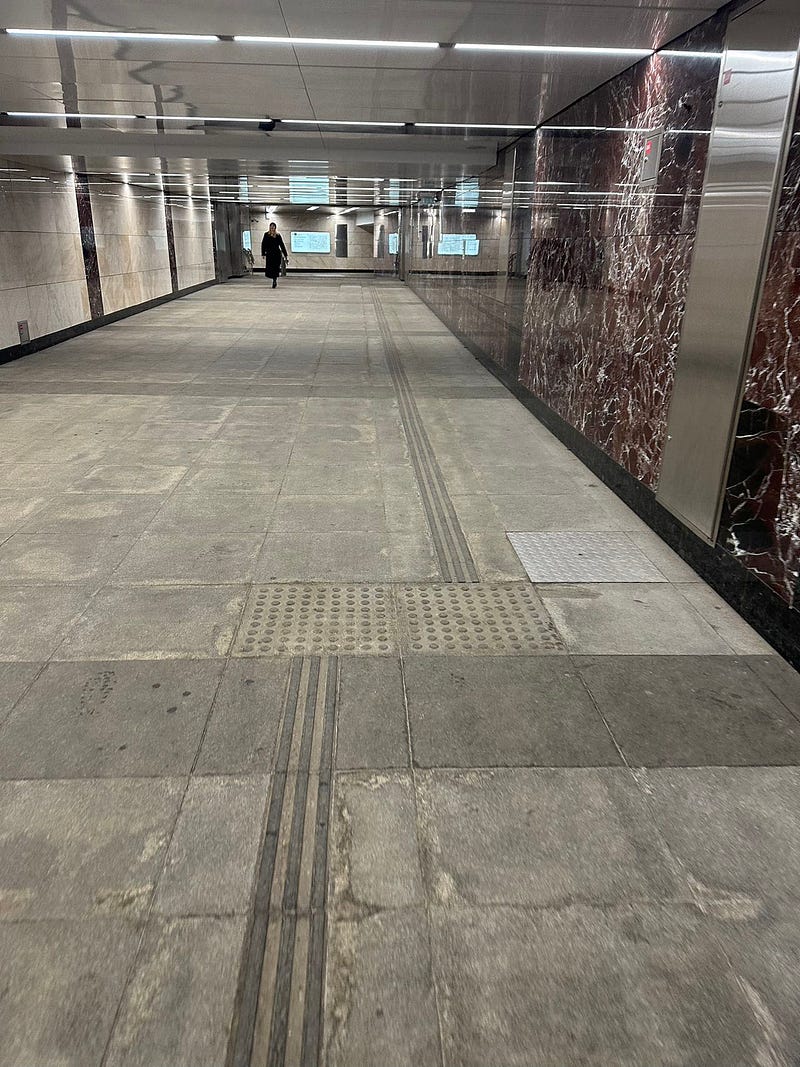Fearful Moscow Terror Through the Eyes of a Chinese Person
the worst day of Russia
Gunshots disrupted the performance.
On the evening of March 22, 2024, at 8 p.m. local time, Vik, a friend of international student Li Yuanping, was in a concert hall in Klokus City, a suburb of Moscow. He was sitting in the mezzanine’s atrium when he witnessed three armed individuals in camouflage uniforms pulling out automatic rifles.

After the incident, numerous ambulances were spotted near the concert hall.
As a Russian, Vik’s reaction was instinctual — duck down first, and run downstairs as soon as the gunfire ceased. Midway, more people surged forward. He recalls hiding in a corner of the building amidst the chaos for a long time.
About an hour later, Vik, having reached safety, realized that a terrorist attack had occurred.
Li Yuanping received Vik’s message while in a taxi. At 26, he had come to Moscow for his studies two years earlier and lived in the city center. He had just visited Klokus City last month for an outdoor expo. Checking his phone, he abruptly grasped the severity of the situation, cursing silently.

Looking through the taxi window, Li Yuanping noticed the traffic jam on his way home.
Li Yuanping was scared and eager to get home, but the unusual traffic jam through the window made him hesitate whether to inform the driver about the terrorist attack. Considering the local apathy towards national affairs and politics due to the Russia-Ukraine conflict, with almost no discussion in daily life, Li Yuanping kept scrolling through his phone for updates on social media.
Before 10 p.m., Li Yuanping reached home, taking twice as long as usual. The aftermath of the attack was still unfolding. Li received a video from another friend showing people running in a fan shape inside a mall in Saint Petersburg — another suspected terrorist attack.
Near the mall, in the Saint Petersburg Philharmonic Hall, pianist Ivan Besonov was playing Chopin’s “Fantaisie-Impromptu in C-sharp minor,” attempting to draw Russians into a world of harmonious music, only to have it shattered by the cold gunfire.
Li Yuanping didn’t sleep until after 2 a.m.
By then, according to reports from RIA Novosti, the incident had resulted in over 60 deaths and more than 100 injuries, with the fire largely extinguished.
But Li Yuanping noted that no one around him cared about the death toll. For many, unease was the predominant sentiment, with fears of a repeat incident and bullets finding their heads. The Terrorist Attack Was Anticipated The attack had warning signs.
On March 7, the U.S. Embassy in Russia issued a safety alert, stating it had received information about extremists planning to attack large gatherings in Moscow, including concerts, advising U.S. citizens in Moscow to avoid large gatherings for the next 48 hours.
During his four years in Russia, Li Yuanping was well-informed. Following the U.S. Embassy’s alert, messaging app groups became more active. Li noted that there were daily discussions about “Americans preparing to evacuate.” However, the response among locals and international students was mixed, with many not taking it seriously.
By mid-month, someone in a group chat mentioned, “The terrorist attack probably won’t happen.” Li agreed, “Nobody expected something like this to happen on the 22nd.”
This belief partly stemmed from the fact that half a month had passed since the alert, and both Li and the locals thought that if an attack were to happen in Russia, it would target downtown buildings and major transport hubs. Li’s classmate had shared an experience of surviving a terrorist attack in the Moscow subway line 6 before the New Year.
The location of this incident, in Klokus City in the northwestern suburbs of Moscow, was unexpected.

Li Yuanping noted that although Klokus City is home to Russia’s largest commercial and leisure center and has a subway station, it is quite far from downtown Moscow, requiring about 2 hours for a round trip. It’s mostly visited by locals, and if not for the occasional expo, he wouldn’t be familiar with the place.
Regarding Klokus City, Chinese international student Wu Qian’s impression was: remote and suburban, “Who would go there for no reason?” Still shaken, Li Yuanping recalled that after the U.S. alert about a potential terrorist attack, Moscow did respond. As the capital, it increased the number of subway security personnel and intensified passport checks on suspicious individuals. Li had been stopped by black metal detectors when entering and exiting the subway. Shopping malls also saw an increase in small security gates.
Yet, the gunfire and flames of March 22 could not be avoided. According to the latest news from the Russian Investigative Committee, the attack resulted in 143 deaths, with the terrorist organization “Islamic State” claiming responsibility.
The Spread of Fear
Following the attack, all cultural events in Moscow over the weekend were either canceled or postponed, with museums and libraries closing. Universities in the Far Eastern region shifted to remote learning, and police intensified their checks.
The atmosphere in Moscow grew tense. On the morning of March 23, Li Yuanping received a call from his mother back in China. Having seen the news, his family was worried about his safety. His mother said on the phone, “If it’s too much, come back. Whether you finish your studies doesn’t matter.”
Li didn’t respond. Having been abroad for years, he didn’t want to worry his parents as usual.
Among international students, fear was spreading. Concerns about personal safety began to surface in WeChat groups, with discussions about possible class cancellations, avoiding going out, and observations of fully armed police in the subway, equipped with handguns, helmets, and bulletproof vests.

Moscow subway police were fully armed. Schools also issued notices advising students to minimize unnecessary outings.
At noon on March 23, someone in Li Yuanping’s chat group started a peculiar business. He couldn’t recall who initiated it, but someone mentioned, “Carry a national flag when going out.” Ten minutes later, a purchase link was shared in the group, selling flags for 519 rubles, about 40 yuan. Before this, the price was around 25–30 yuan.
To his surprise, someone even started selling bulletproof vests. Owning firearms is illegal in Russia, but Li knew that the country’s black market surveillance was not strict, and those determined could still find ways to acquire them. However, in the immediate aftermath of a terrorist attack, bulletproof vests were not suitable for everyone.
In the afternoon, Li had to leave his apartment for work and noticed that taxi fares in Moscow had increased. The chain reaction from the terrorist attack led locals to avoid using the subway and buses, making taxis and ride-hailing services the only option.
“Prices increased by about 10–15 yuan per ride,” which could afford a burger meal locally. The streets were deserted. Normally bustling subway stations during weekends and rush hours were empty; Li counted, “No more than 10 people.”

The desolate streets of Moscow. After the terrorist attack, Vik seems not to have gotten over it yet.
On the afternoon of the 23rd, Li Yuanping sent him a message, but it wasn’t until the evening that he received a reply, which translated into four emotionless words: “I’m resting.”
This aligns with Li Yuanping’s perception of Russians. After the Russia-Ukraine conflict, people have adopted a stance of suspicion and avoidance — guessing political stances, dodging potential terrorist attacks, and ducking at the sound of gunfire.
Their personalities also split in two. Most residents of Moscow and Saint Petersburg prefer not to discuss any state affairs, yearning for peace. The ideal lifestyle for natives in Moscow is leisurely enjoying coffee outside a shop on Pushkin Square, huddled around a heater.
Then there’s the world outside the major cities, where life is much harder for most, infrastructure is crumbling, and people in those areas are more inclined to view the war as something to look forward to, proudly displaying the “Z” symbol on their cars.
Some international students are preparing to leave.
Li Yuanping’s classmate, Zhao Xiaoyu, is one of them. He had only been in Moscow for six months when he was caught up in a terrorist attack. But leaving is not so easy for international students either; his passport had just been submitted for a visa extension. He joked about his predicament, saying that he initially wanted to stay but now finds himself unable to leave. He has applied to the school, expressing his fear of terrorist attacks and his wish to return home, still waiting for a response.

The empty Moscow metro. Li Yuanping took a taxi home before dark. En route, security police opened the hood and trunk for inspection, allowing passage only after confirming he was not a terrorist.
Upon returning home, just as Li Yuanping breathed a sigh of relief, a message popped up in his group chat — the classes for next week had been moved online. He felt things were getting more serious. According to the news, this was one of the most severe attacks on Russia since the 2004 Beslan school siege.






